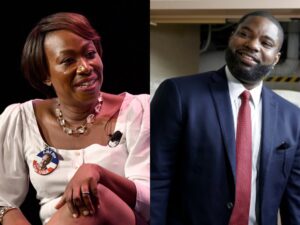The Church’s new LGBT edict is confusing and ill-timed


With barely days to spare before Christmas, Pope Francis rattled Catholics yet again this week with the announcement that the Church will now bless people in same-sex relationships.
Yet it’s not just the odd-timing of the decree that’s left many believers puzzled, but the oddness of the Papal edict itself.
The missive authorizes priests to bless people in same-sex relationships as long as the blessing doesn’t appear to legitimize same-sex marriage, which the Church continues to oppose.
And there’s the rub: what does that new blessing really do?
How is it supposed to work?
What does it mean?
Maybe experienced priests can answer those questions, but the Catholics masses can only guess at Francis’ convoluted guidelines.
Priests can now bless same-sex couples, but not their actual relationships?
What’s the difference – and why the distinction?
There are more obscurities, enough to conclude that ambiguity has been purposely built into the new policy.
One condition after another makes it harder to envision the new rules in actual practice.
This pattern of half-baked logic has become a speciality of sorts for Francis, who’s displayed a canny talent for throwing Catholics off balance ever since he rose to the Chair.
In 2013, for instance, the newly-installed Pope startlingly stated that God “has redeemed all of us, all of us, with the Blood of Christ . . . Even the atheists. Everyone!”
The outburst left Catholics scratching their heads over the meaning of redemption and the value of observance if nonbelievers are also entitled to their benefits.
Three years later Francis confusingly weighed in on divorce, telling Catholics to “accompany” people who have divorced and remarried (a Catholic sin), but never clarifying what “accompany” actually means.
Affirm them in their choices — or send them to confess their sins?
Take your pick.
The slippery rhetoric led the U.S. Bishop’s onetime head of doctrine to accuse the Pope of “intentional lack of clarity” and “chronic confusion.”
Declarations from the Vatican aren’t supposed to work this way.
Announcements should clarify, not confound — and this one has certainly confounded.
NPR describes the church shift around gays and lesbians as a “major departure;” NBC News considers it a “radical change.”
But Catholic sources insist nothing much will actually be different.
Indeed, not only does the new policy reaffirm the sacred nature of marriage, it explicitly forbids blessings for any ritual that could in any way be perceived as marriage.
Regardless of your feelings about LGBT coupledom, such verbal muddle clearly benefits no one, particularly Gays and Lesbians desperate for a deeper relationship with Catholicism.
With its arrival so close to Christmas, the Vatican could have done better than delivering a policy so ripe for discord and disagreement.
At the very moment we are tasked with uniting in ecclesiastical adoration, must we really descend into the battle-pits of our unending cultural warfare.
Count this as yet another reason why popular mistrust of institutions now so frustratingly extends to the church.
A few years back, at a meeting of Christian notables, a lay attendee rose in the crowd and brazenly declared that their leaders would someday, somehow, betray them.
Weak-kneed policy decrees like the one this week are an example of this betrayal in action.
Instead, Catholics want resolve and courage, plain talk and consistent dogma, particularly in an era where everything solid seemingly melts into air — and our leaders dither and hedge, promise and fail.
It is getting harder, in fact, for Catholics not to suspect that the ambiguity of Vatican positions is nothing less than deliberate.
Fuzziness, open-ended language, the reliance on implication, no clear blue-print or instruction . . . they have a definite impact precisely because they have an indefinite meaning.
They make it hard to respond.
We spend our time puzzling over the point.
We feel as if our authorities are toying with us, which leads to demoralization and ultimately disbelief.
Tomorrow is the day when dismay of any kind should fall in a sublime ritual of thanks.
Instead, many will sit and wonder just what is the church trying to prove.
Is Francis riding into 2024 as an impassioned ideological reformer?
Or is he merely virtue-signaling like everyone else with decrees and doctrine that masquerade as progress, but offer little in terms of meaningful change.
Late-December is a time for timelessness – not identity politics or current events.
For 2,000 years, the Catholic Church has evolved at a glacial pace, as it should.
The world speeds up, the Church slows down, and people take comfort in this changelessness.
The laity in 2023 don’t want extreme modernization to come out of Rome.
They get enough of it in the rest of their lives.
“The desire for God is written in the human heart,” the Catholic Catechism says, and it is the Church’s duty to preserve that desire through unmistakable counsel, candid words and sturdy practice.
The world in 2023 is baffling and dispiriting. We need church clarity now more than ever.
Mark Bauerlein is Emeritus Professor of English at Emory University and an editor at First Things magazine







